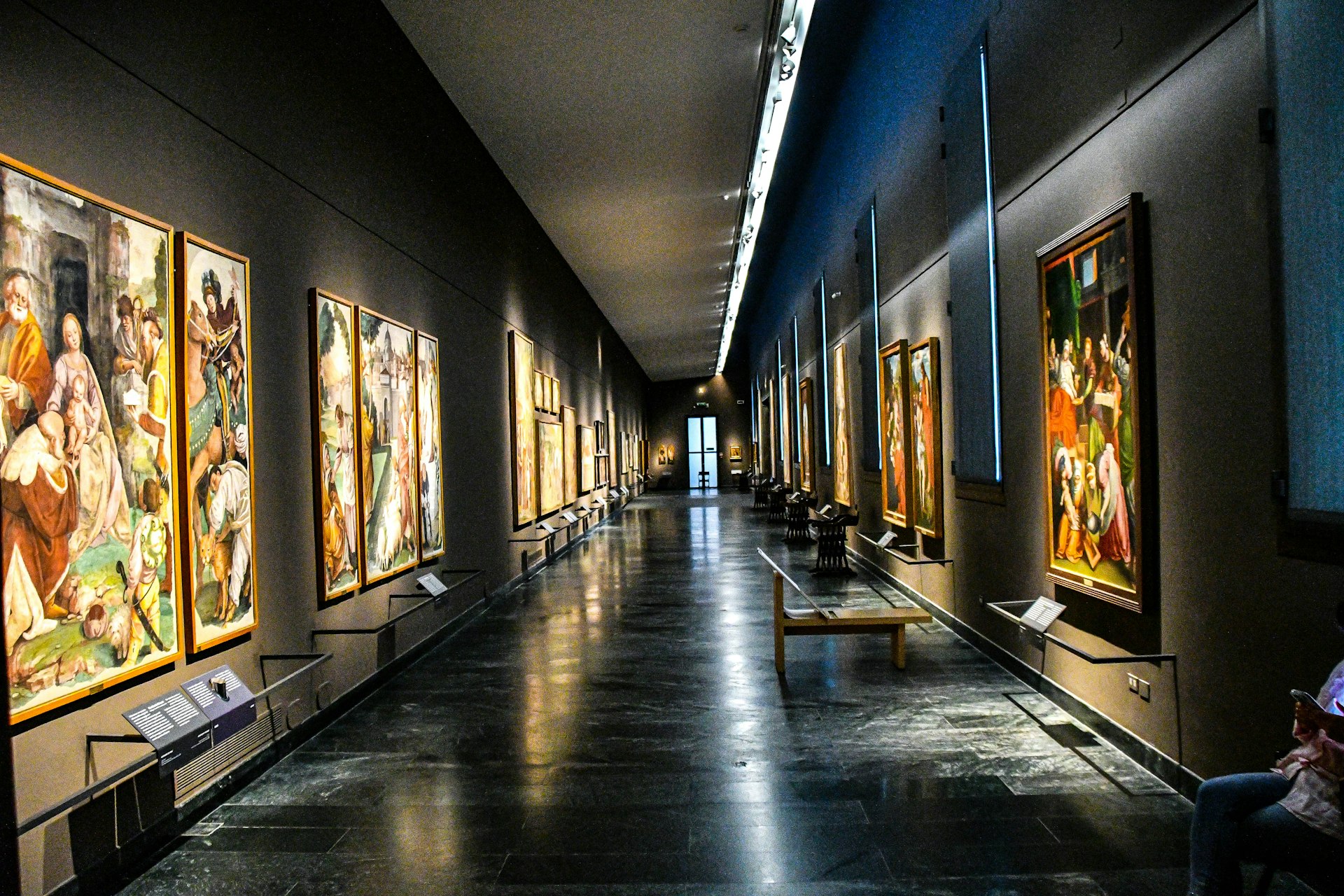Unveiling the Enlightenment: Origins, Ideas, and Impact

Photo by Europeana on Unsplash
Introduction: The Dawn of a New Era
The Enlightenment, often called the Age of Reason, marked a profound transformation in Europe’s intellectual, cultural, and political landscapes from the late 17th to the late 18th century. Driven by a commitment to reason, critical inquiry, and empirical evidence, this movement catalyzed changes that continue to influence the modern world. While its roots stretch back to earlier scientific achievements, the Enlightenment established new standards for knowledge, governance, and social progress [1] [2] .

Photo by Marika Iaccarino on Unsplash
Origins and Foundations: Seeds of Change
The Enlightenment emerged from the Scientific Revolution of the 16th and 17th centuries, which had already shifted European thought towards observation and experimentation. Key figures like
Francis Bacon
, who advocated for the scientific method in works such as
Novum Organum
(1620), and
Galileo Galilei
, whose telescopic discoveries challenged prevailing cosmologies, laid the groundwork for new ways of thinking
[3]
[1]
.
Philosophers René Descartes and John Locke contributed foundational ideas: Descartes’ famous dictum, “Cogito, ergo sum” (I think, therefore I am), and Locke’s doctrine of natural rights (life, liberty, property) shaped the movement’s focus on human reason and individual liberty [2] .
Key Thinkers and Their Contributions
The Enlightenment was not a monolithic movement but a vibrant network of thinkers, writers, and reformers across Europe and North America. Some of the most influential include:
-
Isaac Newton
– His
Principia Mathematica
(1687) unified physics, explaining gravity and motion, and demonstrated the power of rational inquiry [1] . - John Locke – Advocated for government by consent, separation of powers, and religious tolerance [3] .
-
Voltaire
– Criticized religious intolerance and championed free speech in works like
Letters on the English
[4] . - Montesquieu – Formulated the idea of separating governmental powers, which influenced modern constitutions.
-
Jean-Jacques Rousseau
– Explored the social contract and education in
The Social Contract
and
Emile
. -
Adam Smith
– His
The Wealth of Nations
(1776) laid the foundations for classical economics.
These thinkers, among others, produced a body of work that questioned traditional authority, advocated for empirical observation, and promoted the idea that progress was possible through human effort [2] .
Spreading Ideas: Salons, Coffeehouses, and Print Culture
The Enlightenment ideas spread rapidly due to the rise of salons -organized gatherings, often hosted by women, that brought together intellectuals for debate and discussion. Coffeehouses in cities like London, Paris, and Vienna became hubs for exchanging news, political ideas, and scientific discoveries. The proliferation of printed books, newspapers, and pamphlets enabled ideas to travel further and faster than ever before [4] .
To engage with primary Enlightenment texts today, you can access digital archives of major libraries or search for works by the figures mentioned above through university or public library databases. For public domain texts, consider resources such as Project Gutenberg or the Internet Archive, which provide access to many original works by Enlightenment philosophers.
Major Developments and Milestones
Timelines of the Enlightenment often highlight:
-
1637
– Descartes publishes
Discourse on the Method
. -
1687
– Newton’s
Principia Mathematica
is released. -
1689
– Locke’s
Two Treatises of Government
and
Essay Concerning Human Understanding
appear. - 1751 – The Encyclopédie, edited by Denis Diderot and Jean le Rond d’Alembert, begins publication, aiming to gather and disseminate all human knowledge.
- 1776 – American Declaration of Independence draws upon Enlightenment concepts.
- 1789 – The French Revolution erupts, heavily influenced by Enlightenment ideals [4] .
To explore these works, you may search academic databases, visit university libraries, or look for reputable online repositories. Many universities offer open-access digital copies of classic Enlightenment texts.
Political and Social Impact
Enlightenment principles fueled major political upheavals and reforms. In America, the Founding Fathers, inspired by Locke and Montesquieu, embedded checks and balances, rights to free speech and religion, and the idea of government by consent into the U.S. Constitution. The French Revolution similarly drew from Rousseau and Voltaire, though it also underscored the movement’s limits and the dangers of radical change [4] .
Beyond politics, Enlightenment ideas challenged established religious authority, promoted freedom of thought, encouraged scientific and educational reform, and began the push for abolition of slavery and expansion of human rights. These reforms often faced resistance from traditional institutions, and progress was uneven and sometimes violent.
Challenges, Criticisms, and Legacy
Despite its transformative effects, the Enlightenment was not without controversy. Some critics argue that it overemphasized rationality at the expense of emotion and tradition, or that it primarily benefited European elites. The movement’s legacy is also complex: while it promoted universal rights, many Enlightenment thinkers still accepted social hierarchies and colonialism. Nevertheless, its core values-reason, skepticism, and the pursuit of knowledge-remain foundational to modern democratic societies [2] .
For those interested in further study, consider searching for “Enlightenment philosophy courses” at accredited universities or via platforms like edX or Coursera. Public libraries and museums, such as the British Library or the Library of Congress, often feature online exhibitions and educational resources on the Enlightenment.
Practical Steps for Further Exploration
If you want to deepen your understanding or apply Enlightenment principles today, you can:
- Read primary sources by Locke, Voltaire, Rousseau, and others, available through public library systems or digital archives.
- Participate in discussion groups or online forums focused on philosophy, history, or political science.
- Enroll in free or paid university courses on the Enlightenment, searching for “Enlightenment history course” at accredited institutions.
- Visit local museums, libraries, or historical societies for exhibitions or talks on Enlightenment themes.
- Engage with open-access academic journals for recent scholarship and critical debates on the movement’s impact.
When accessing resources, always use trusted academic, library, or governmental sites, and verify the authenticity of digital sources before relying on their information.
Conclusion: The Enlightenment’s Enduring Relevance
The Enlightenment’s legacy endures in modern science, politics, and culture, shaping debates about knowledge, liberty, and progress. Its emphasis on evidence, debate, and reform remains vital for addressing today’s global challenges. By exploring the movement’s origins, ideas, and impact, you can better appreciate the foundations of contemporary society and the ongoing relevance of Enlightenment principles.
References
- [1] Encyclopaedia Britannica (n.d.). The Enlightenment Timeline – Key events and figures.
- [2] Wikipedia (2024). Age of Enlightenment – Historical overview and analysis.
- [3] World History Encyclopedia (2024). Timeline: The Enlightenment – Chronology and developments.
- [4] EdrawMind (2024). Age of Enlightenment Timeline: Key Events & Thinkers.



